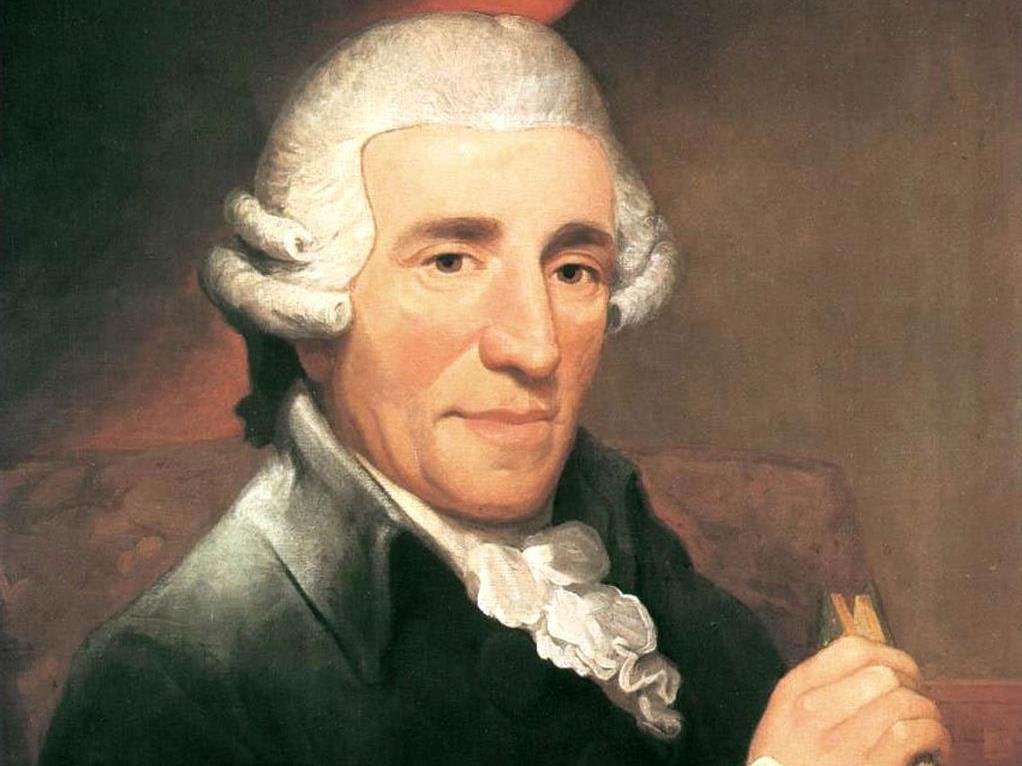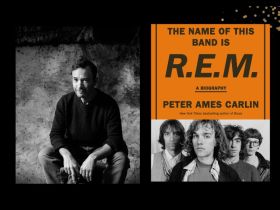Portrait of Joseph Haydn by Thomas Hardy (detail); image via Wikipedia.
The eminent Australian fortepianist, musicologist and Haydn specialist, Geoffrey Lancaster writes:
“Haydn is not (and probably never will be) a wholly popular composer like Mozart, Beethoven, Chopin or Tchaikovsky. Not even a clear and informed grasp of the scope of his music will bring this about. This is because there is something inherently unembraceable in Haydn’s music; his humour is frequently not quite what it seems; his profoundly beautiful slow movements are austere; the degree of imagination and sensitivity is often astonishing; his directness is coloured by the shadows of emotional veiling and reserve…other composers inhabit; Haydn is aloof. He is music’s supreme intellectual…every lover of Haydn recognises that within his blazing cerebral power, many characteristics exist that are difficult to name, so completely are they rendered in music. The range is enormous: high spirits, serenity, strangeness, never-morbid mannerist extremity.” (Tall Poppies, 2010)
I preface this review of the final recital in a three-year project, merely to question if, in fact, Haydn is ‘for everyone’ as the Series suggests, as admirable as that hope may be. Doubtless, it has been a worthy exercise to program with various ensembles the 68 String Quartets composed by this great Austrian composer; for they comprise a remarkable body of work by a genius musician whose oeuvre could only be quantified as the very height of the Classical Period’s achievement. But ‘for everyone’? As I sat in the far-from-full, pocket-sized Collins Street Baptist Church, I was left unconvinced.
The second ‘historically informed’ string quartet to appear in this Series in two nights, Ironwood presented experienced players with wide international experience. Known for performances of Baroque through to Romantic music, the ensemble on this occasion had mixed success with a program of Classical and early-Romantic string quartets by Jadin (Op 1, No 2), Hummel (Op 30 No 3) and Haydn (Op 50 No 4). Ironwood has many strengths to celebrate; what I felt the ensemble lacked on this occasion was a polished and unified sound, well-rehearsed cohesive intent in the shaping of phrases, and clearly worked-through articulation of each work’s rhetoric.
The recital commenced with youthful music by the late-Classical composer, Hyacinthe Jadin, a French Revolution survivor, who only a few years later succumbed to tuberculosis aged 24. His second quartet opens with a march-like, strident Allegro. The Menuetto which followed struggled for buoyancy while the Pastoral Andante was tenderly and lyrically realised. The Finale confirmed that the work had every reason to be considered a first-rate composition, but somehow wasn’t.
By comparison, Haydn’s fourth, Op 50, F-sharp minor String Quartet in a set known as the ‘Prussian’ and dedicated to King Frederick William II, a capable amateur cellist, gave us the composer in full maturity, revealing his familiarity with writing for the genre, his emotional depth and intellectual expression. The opening Allegro spiritoso presented soul-searching anxiety in an unusual key before finding resolve in the slow and dignified Andante, an illustration of the composer’s perhaps infamous aloofness and reserve, alluded to above. The buttercup-yellow Menuetto was delightfully conveyed, while the Finale returned us to more emotional hurly-burly and contrapuntal seriousness. The ensemble gratefully conveyed all this fine work with confidence and much élan. (An interesting side note is that the original manuscripts of Quartets 3 to 6 in this set were brought forward by a patron of the Melbourne Festival in 1982.)
The recital concluded with an early Romantic quartet by Bratislava-born, J N Hummel, an odd union of Austro-Hungarian Classical quartet writing and early Romantic Italian opera. A student of Mozart, he was also a child prodigy and touring keyboard virtuoso. Evidence of his renown is that he succeeded Haydn as director of music at Esterházy in 1804. A progressive composer, this work clearly reflected Hummel’s frustration with Classicism and the then prevailing string quartet style, however, his efforts towards an engaging alternative were left uncertain and unconvincing (no fault of the musicians performing it). A further peculiarity could be found in the Andante where references are curiously made to the opening aria, Comfort ye my people from Handel’s Messiah.
I didn’t understand why each member of the ensemble and the curator of the Series needed to speak from the stage with a microphone, at least once, particularly with such pedestrian information.
Rating: 3 stars out of 5
Ironwood
Rachel Beesley, violin
Emma Williams, violin
Heather Lloyd, viola
Daniel Yeadon, cello
Presented by the Melbourne Festival
Collins Street Baptist Church
Quartets at Sunset
Haydn for Everyone Series
Project conceived by Richard Tognetti, AO
2015 program curated by Marshall McGuire
Melbourne Festival
www.festival.melbourne
8-25 October 2015





